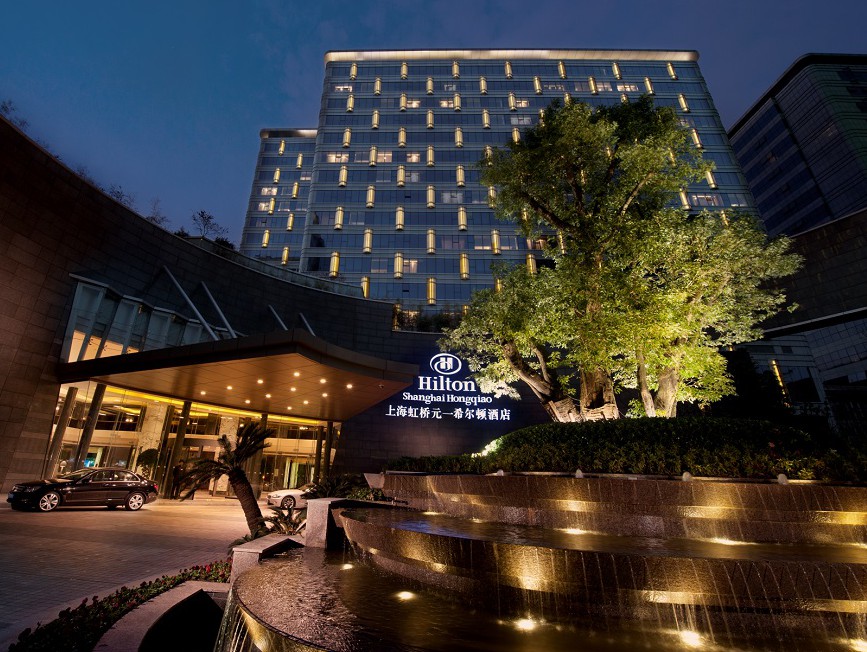Blackstone, HNA Shake Hands on $6.5B Deal
The Beijing-based conglomerate has acquired a 25 percent stake in Hilton Worldwide.
By Gail Kalinoski
Beijing, McLean, Va., and New York—Chinese tourism conglomerate HNA Group has made another major move to expand its reach in the global hospitality market, agreeing to pay about $6.5 billion to Blackstone for a 25 percent stake in Hilton Worldwide Holdings Inc.
The stake will also give Beijing-based HNA Group a long-term strategic investment in Hilton and two spin-off companies planned by Blackstone for later this year–Park Hotels & Resorts and Hilton Grand Vacations. The deal is expected to close in the first quarter of 2017 and will reduce Blackstone’s interest in Hilton to approximately 21 percent. It will give HNA Group 25 percent ownership in Hilton, Park and HGV.
“We are pleased to welcome HNA Group as a long-term investor and strategic partner,” Christopher Nassetta, Hilton president & CEO, said in a prepared statement. “HNA Group has a broad portfolio of successful travel and hospitality businesses and a proven track record of creating value in this industry. We believe this mutually beneficial relationship will open new opportunities for our brands and guests around the world, particularly in light of HNA’s strong position in the fast-growing Chinese travel and tourism market, the largest outbound travel and tourism market in the world.”
The private equity giant paid $26 billion for the Hilton chain in 2007. In December 2013, Blackstone took the company public with a $2.34 billion initial public offering that was a record for the hotel industry at the time and the second biggest IPO of 2013. Even after the IPO, Blackstone still owned nearly 80 percent of Hilton.
“Since our initial investment in Hilton nine years ago, the company and its leadership team have delivered phenomenal results,” Jon Gray, global head of real estate at Blackstone & chairman of the Hilton Board of Directors, said in a prepared statement. “We think the company’s future is bright and this long-term investment from HNA Group only adds to its potential.”
Chinese companies, including HNA, have been actively acquiring hospitality companies around the world. In September, Blackstone closed on the $5.5 billion sale of Strategic Hotels & Resorts Inc., a luxury hotel REIT, to Anbang Insurance Group Co., which also owns the Waldorf Astoria hotel in Manhattan. In April, HNA announced it was buying Carlson Hotels Inc. from Carlson Hospitality Group for an undisclosed price.
Founded in 1993, HNA started as a regional airline based on China’s Hainan Island and is now a global company with more than $90 billion worth of assets, $30 billion in annual revenues and an international workforce of nearly 200,000. The fast-growing conglomerate has market-leading positions in aviation, hotels and travel services. It operates and invests in about 2,000 hotels and flies 1,250 aircraft to 260 cities worldwide.
“Hilton is an iconic global hospitality company with an unmatched portfolio of high-quality brands and a reputation for operational excellence,” Adam Tan, vice chairman & CEO of HNA Group, said in prepared remarks. “This investment is consistent with our strategy to enhance our global tourism business and we look forward to working together on new initiatives that leverage our respective strengths, expertise and tourism platforms to provide travelers more choice, value and world-class service.”
Noting that the track record of cross-selling synergies between travel and lodging companies is poor, Stephen Boyd, senior director at Fitch Ratings, said the success of HNA Group’s stake in Hilton will be determined by Hilton’s performance rather than tourism synergies with HNA’s other businesses.
“Although growing tourism demand from China’s middle class is an opportunity this deal may shed light on, HNA’s investment in Hilton is much larger than its other hotel investments so it likely hinges less on tourism synergies than others,” Boyd told Commercial Property Executive.
He pointed to examples of airline/hotel combinations from the mid-20th century including Pan Am/Inter-Continental, Trans World Airlines/Hilton International and UAL/Westin.
“Hilton and other hotel brands have been down a similar road before, and ultimately transportation and accommodation synergies failed to materialize, resulting in the airlines divesting their holdings,” Boyd said.
As part of the transaction, HNA has entered into stockholders agreement with Hilton and into similar agreements with Park and HGV, when the closings for those spin-offs are completed. HNA will appoint two board directors and will have restrictions on its ability to sell any of its interest for two years. Blackstone will continue to have two seats on the board, including Gray, who will remain as chairman.
Evercore served as financial advisor and WilmerHale and Morris, Nichols, Arsht & Tunnell LLP were legal advisors to the special committee of Hilton’s Board of Directors. J.P. Morgan served as financial advisor and Weil, Gotshal & Manges LLP as legal counsel to HNA. Simpson Thacher & Bartlett LLP was Blackstone’s legal counsel.








You must be logged in to post a comment.